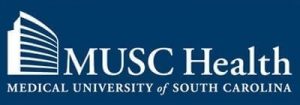Preparing nursing students for pandemics and other crises through Global Initiatives
May 28, 2020Intensive care unit nurse Caroline Wright, a 2018 graduate of the Medical University of South Carolina College of Nursing’s accelerated Bachelor of Science in Nursing Program, temporarily left her job at MUSC Health to work in a COVID-19 unit at New York’s Long Island Jewish Medical Center. It’s been an eye-opener.
“This is nursing unlike anything I learned in school or learned working.” Wright said.
She’s had to reuse protective gowns and masks. And difficult decisions have to be made on a routine basis. “These patients are so sick. It’s like triaging, in a sense. Just discerning how you’re going to prioritize care. It’s rewarding, but it has also been the hardest and most harrowing time of my career.”
As Wright can tell you, nursing in a pandemic requires not only compassion and nursing knowledge but also creativity, flexibility, teamwork and the ability to think critically and make decisions quickly.
The College of Nursing recognized the need for students to hone those skills, aware that at any time a global health crisis could be on the horizon. Nurses need to be able to respond to crises and provide care when resources are scarce.
So the College of Nursing secured two philanthropic gifts, the Falk-Griffin Global Initiatives Endowment and the Mary Swain Global Initiatives Endowment, to fund student global health experiences. Students will learn about clinical care in countries where needs are high, and resources are limited.
Suparna Qanungo, Ph.D., associate professor and director of the College of Nursing’s Global Health Initiatives Program, piloted the program in India in 2015. The experience changed students’ perspectives dramatically.
The MUSC students worked in what Qanungo described as underserved areas where they learned how to treat patients with limited supplies and get creative with what they had.
The Global Initiatives program will build on what she learned from that experience. While Qanungo chose India for her first foray, because she grew up there and was familiar with it, the program will include visits to other countries as well.
COVID-19 is a stark reminder of how important these kinds of experiences can be, Qanungo said. “There are a lot of parallels between what they learn in other countries and what some nurses are facing now in the U.S. during the novel coronavirus pandemic.”
Cathy Durham can attest to that. She has a Doctor of Nursing Practice degree and is director of the College of Nursing’s DNP Program. She’s also a U.S. Navy Reserve captain. Durham was deployed to New York City in mid-March as the number of COVID-19 cases soared. She’s supervising more than 130 nurse reservists.
“Most of our team here has deployed to Iraq or Afghanistan or Haiti or Djibouti. When you’re in environments that are medically austere, you often have to go without significant technology. You may not have all the bells and whistles or the newest medications, but you still have to respond,” she said.
She said the College of Nursing’s Global Initiatives program will give students a taste of that.
“Students having that opportunity in a somewhat controlled environment will absolutely help them in providing care, and if we were ever confronted with a pandemic again, being able to triage really quickly and be able to respond calmly will be essential. There is no other experience that will provide you with that.”
Wright, the MUSC Health nurse at Long Island Jewish Medical Center, said crisis care can be challenging, and occasionally, amazing.
“I had a mother who had just given birth. She was COVID-19 positive, and the baby was positive. The mother was on a ventilator. They put her on ECMO (extracorporeal membrane oxygenation). They put her on continuous dialysis. She was going downhill fast,” Wright said.
“I didn’t really see her after that. I just figured – you don’t really ask when you don’t see a patient, because you don’t want to hear what happened. But as I was leaving the hospital after a long shift one day, I heard all this commotion in the lobby. I looked over, and that same patient was being wheeled out of the hospital with her baby in her arms. That moment right there – I needed that. It made it all worth it, really and truly.”
Wright decided to sign up for another four weeks on the pandemic’s front line.
About MUSC
Founded in 1824 in Charleston, MUSC is the oldest medical school in the South as well as the state’s only integrated academic health sciences center with a unique charge to serve the state through education, research and patient care. Each year, MUSC educates and trains more than 3,000 students and 800 residents in six colleges: Dental Medicine, Graduate Studies, Health Professions, Medicine, Nursing and Pharmacy. The state’s leader in obtaining biomedical research funds, in fiscal year 2019, MUSC set a new high, bringing in more than $284 million. For information on academic programs, visit http://musc.edu.
As the clinical health system of the Medical University of South Carolina, MUSC Health is dedicated to delivering the highest quality patient care available while training generations of competent, compassionate health care providers to serve the people of South Carolina and beyond. Comprising some 1,600 beds, more than 100 outreach sites, the MUSC College of Medicine, the physicians’ practice plan and nearly 275 telehealth locations, MUSC Health owns and operates eight hospitals situated in Charleston, Chester, Florence, Lancaster and Marion counties. In 2019, for the fifth consecutive year, U.S. News & World Report named MUSC Health the No. 1 hospital in South Carolina. To learn more about clinical patient services, visit http://muschealth.org.
MUSC and its affiliates have collective annual budgets of $3.2 billion. The more than 17,000 MUSC team members include world-class faculty, physicians, specialty providers and scientists who deliver groundbreaking education, research, technology and patient care.














